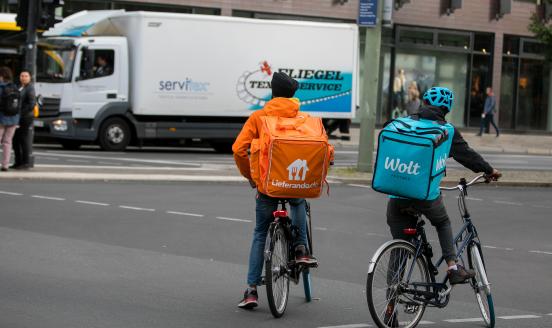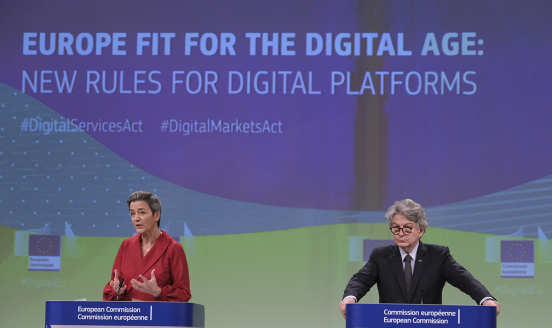European antitrust fines: a new wave of deterrence?
The European Commission just delivered the highest aggregate fine in its history for operating a cartel: €1.47bn (see Euractive). That comes at the en
The European Commission just delivered the highest aggregate fine in its history for operating a cartel: €1.47bn (see Euractive). That comes at the end of a long investigation into collusion between TV-tube makers: the first dawn raids by the Commission's Competition Directorate-General took place in 2007. The case has some interesting economic and legal implications. In particular, the Commission was reported (by Mlex) to have attached some weight to sales outside the EU by cartel members. Indeed, occasionally the cartel may have occurred only "upstream", ie cartel members might also have colluded on the price of LCD screens which were then used as inputs by subsidiaries or third companies in the production of TVs. The upstream sales might have occurred outside Europe while the actual TVs were then sold within Europe. This provokes the question: should the upstream sales be included in the European Commission's calculation of the fines? My personal take is: yes, they should, because the effect of collusion upstream outside Europe still materialises downstream in Europe in the form of higher prices charged to European consumers. But I guess the answer may be not so straightforward.
More generally, the decision is also relevant because it comes at a hectic moment in EU activity on antitrust fining policy. Yesterday the EU Court of Justice upheld the Commission's decision to fine AstraZeneca for an abuse of dominant position. AstraZeneca was accused of implementing a strategy to slow the entry of generic drugs into the market (see Dg-Competition’s press release). Two on-going investigations of alleged collusion activities related to the worldwide sale of car parts, and interest-rate manipulation, are expected to lead to significant fines in the near future. Microsoft is also facing the risk of a high fine for allegedly not having abided by its commitment to offer consumers a choice between different internet browsers as alternatives to Explorer (see Deutsche Welle for a recent comment).
All this seems to suggest that Joaquín Almunia, Commission antitrust commissioner, is willing to send a strong signal that European competition policy will be enforced, and companies should expect to face consequences if they breach competition law.
Deterrence is all about expectations. Companies refrain from entering into cartels or abusing their dominant position if what they expect to gain (ie the additional profit with respect to a counterfactual scenario in which they compete fairly) is less than what they expect to lose (ie the fine imposed by the antitrust authority if the illegal activity is discovered). Expectations depend on a number of variables: expected gains depend on markets’ structural features, such as demand elasticity or actual competitive conditions in the market, and on the likelihood that a cartel will not collapse because of the risk of defections by other cartel participants. Expected losses depend on the size of the fine imposed, the speed with which the fine is imposed and the probability that the illegal activity is ultimately detected. Protecting whistle-blowers through leniency programmes has shown to be an effective means to reduce cartel stability and increase the likelihood of detection. However, much of the debate in practitioners’ and academic circles is now focussed on how to increase deterrence through personal liabilities. After all, companies are managed by individuals. Those individuals may have a lot to gain by breaking antitrust laws, reaping short-term benefits, while they might not expect to carry the costs: by the time a cartel investigation is concluded, the very same individuals might have already left the original company. They may care little if their former shareholders bear the costs of their past illegal decisions. And even if they stay within the same company, they often do not face severe consequences on their career.
Conversely, criminal sanctions have proven very effective in the US. In the UK, evidence from the Office of Fair Trading (see Deloitte Deterrence Study – 2007) indicates that business perceives criminal penalties and disqualification of directors as the most important factors motivating compliance. The level of fines comes only fourth in the ranking.
The EU's problem is that, despite the European Commission exercising antitrust control whenever most of the turnover of the companies involved in an alleged infringement is not derived from just one EU or EFTA country, it lacks the enforcement capabilities which are potentially available to member states, eg criminal sanctions for cartel members. The result is that the most important cases (the ones which involve more than one country), with a stronger negative impact on welfare, might lack sufficient deterrents. Two days ago, Andreas Mundt, president of the Bundeskartellamt, called for more convergence on national cartel procedure at European level. He referred to European Commission and national competition authority initiatives to explore possible paths to coordinated approaches within Europe.
How to improve enforcement through improved deterrence, which does not necessarily imply higher fines, is a hot and much-debated topic among scholars.
Bruegel is planning to do further research on the subject – stay tuned.



